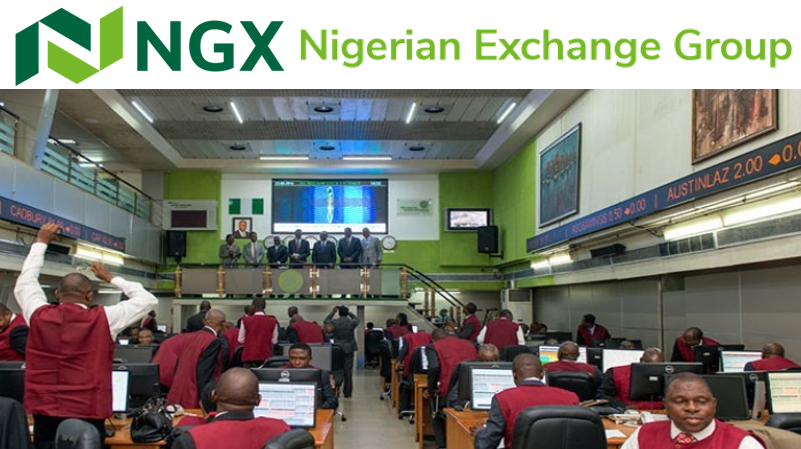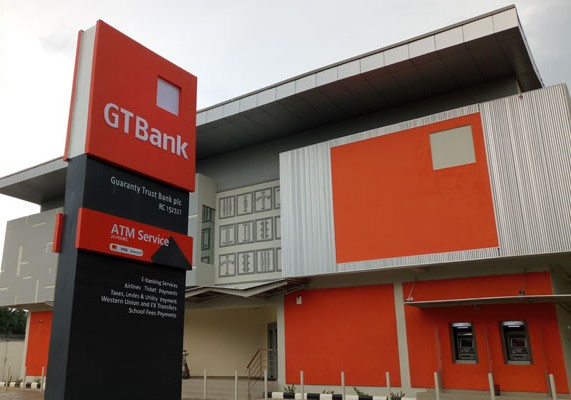Equity Market Experiences Loss Amid Declines in Leading Stocks
After a promising start to the week, Nigeria’s equity market saw a downturn on Wednesday as top stocks, including UBA, Oando, Nascon, Thomas Wyatt, and Lasaco, posted declines.
The Nigerian Exchange Limited (NGX) All-Share Index fell by 0.30%, dragging the year-to-date return down to 29.15%.
Join our WhatsApp ChannelMajor Stock Losses Shape Investor Sentiment
The share price of UBA, which had been performing well earlier, dropped from N35.05 to N31.55, a decline of N3.50 or 9.99%. Investors were especially concerned by Oando’s performance, with its share price falling from N72.65 to N65.40, a loss of N7.25 or 9.98%.
READ ALSO: Nigeria’s Equity Market Sees 0.92% October Decline
“This week has seen more losses than gains, and it’s affecting our confidence in the equity market,” said Emeka Nwankwo, an active investor in the Nigerian stock market. “Stocks like UBA and Oando were expected to bring stability, but today’s decline is raising questions.”
Other stocks like Thomas Wyatt also faced a drop, moving from N1.94 to N1.75, losing 9.79%. Nascon and Lasaco added to the decline list, with Nascon’s share price decreasing from N32.55 to N30, a loss of 7.83%, and Lasaco slipping from N2.40 to N2.22.
Wednesday’s Trades and the Equity Market Outlook
In Wednesday’s session, a total of 418,386,118 shares worth N10.04 billion were traded across 9,021 deals. Sterling Financial Holdings Company, UBA, Access Holdings, Jaiz Bank, and Veritas Kapital Assurance were among the most actively traded stocks of the day, keeping investor interest alive in the market despite recent declines.
“While activity levels remain high, we’re seeing fluctuations in market stability,” noted Bolaji Afolabi, a market analyst. “The equity market’s recent gains have been impressive, but this week’s trend suggests investors should approach with caution.”
Market Index and Capitalisation Decline
The NGX All-Share Index, which measures the overall performance of the equity market, dropped from 97,123.61 points on Tuesday to 96,567.24 points by the close of Wednesday’s session.
Similarly, the market capitalisation fell from N58.851 trillion to N58.514 trillion, reflecting the impact of declining stock prices.
Investors Question Market Stability
With two consecutive days of declines overshadowing Tuesday’s gains, questions are arising about the equity market’s future performance.
“It’s essential to monitor these trends as the market adjusts,” said Nwankwo. “The recent highs offered optimism, but sustainability is key.”
As the equity market moves toward the close of the week, investors and analysts are watching closely to see if there will be a rebound or if the downtrend will persist, impacting the overall positive momentum of 2024 so far.
Emmanuel Ochayi is a journalist. He is a graduate of the University of Lagos, School of first choice and the nations pride. Emmanuel is keen on exploring writing angles in different areas, including Business, climate change, politics, Education, and others.
- Emmanuel Ochayihttps://www.primebusiness.africa/author/ochayi/
- Emmanuel Ochayihttps://www.primebusiness.africa/author/ochayi/
- Emmanuel Ochayihttps://www.primebusiness.africa/author/ochayi/
- Emmanuel Ochayihttps://www.primebusiness.africa/author/ochayi/



















Follow Us